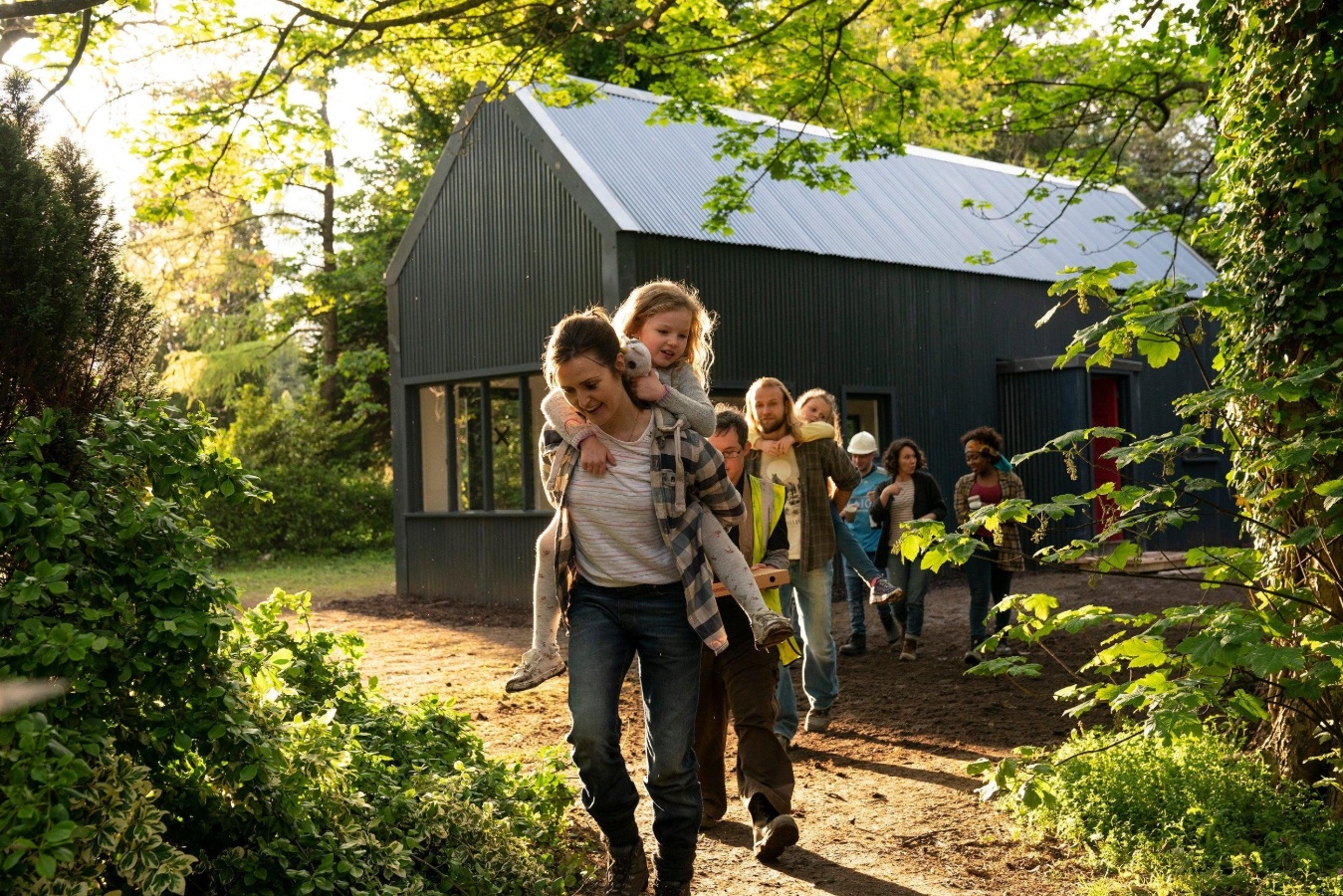Abuse is a hard subject to talk about, let alone put into words, and filmmakers who choose to tell these stories always have a struggle. How much of the incidents do you show, how much should be made of the suffering that the victims of domestic violence experience before and after their experiences, how do you thread the line between being honest and being cruel? Many great directors and writers have made exploitative films about physical violence in relationships, showcasing their protagonists on an endless odyssey of emotional torment following the end of their situation, even with good intentions behind their depictions. It’s not easy to do justice to something that’s still so stigmatized to discuss in public.
That’s a big reason why the overwhelming majority of Herself, the latest film from Mamma Mia! director Phyllida Lloyd, is so commendable. For most of the 97-minute runtime, Lloyd’s third feature film handles the life of a domestic abuse survivor with compassion and detailed nuance. Herself is about Sandra (played by co-writer Clare Dunne), an Irishwoman who has experienced severe physical violence from her partner. She has recently been able to leave the man who repeatedly harmed and abused her, but due to the custody situation with her kids, is forced to stare into the eyes of the abuser on a regular basis. In addition to this, due to her leaving without a concrete support system, she’s left without a permanent home for her and her children, and struggles with Dublin’s classist bureaucracy regarding housing. Eventually, with the support of her friend Peggy (Harriet Walter) and a local builder (Conleth Hill), she decides to build her own house in spite of all the obstacles placed in her way.
The main success of Herself is how it handles the aftermath of such traumatizing violence. When Sandra experiences triggering moments, flashbacks are used briefly and without much detail to put more emphasis on the psychological pain she’s been through. It would be easy to linger and exploit the physical violence for the sake of shock value but Lloyd refuses to linger in the blood. All the flashbacks are focused on Sandra’s face or brief images she sees around her. There is no on-screen depiction of a punch or any other form of physical abuse, which proves to absolutely be the right decision. Most of the film’s focus is placed on the struggles of domestic abuse victims without support systems. The housing and courts systems in Ireland (and all over the world) are not designed for victims of violence. The lack of proper support or belief in these survivors keeps many of them trapped in abusive situations, something Herself highlights with a development in its second half.
The film shines when focusing on the highs and lows of Sandra’s parenting. The difficulties of dealing with two young children mostly on your own are never dismissed, sometimes she struggles extremely with the extra responsibilities placed on her back, but equal devotion is put towards conveying the sense of joy and purpose that raising young lives can bring to people. One of the finest parts of Dunne’s mesmerizing performance is watching her eyes as she stares at her daughter playing. Even after everything she’s been through, she still gets comfort watching the life she brought into this world. The beautiful gestures don’t end with mother and daughter as the friendship between Sandra and Peggy is deeply affecting throughout. The way Peggy holds Sandra after traumatizing news or celebrates with her after victories is beautiful and one of the gentlest on-screen friendships in recent memory. There is a sense of kindness in the depiction of community that provides a necessary contrast to the horrors of abuse.
At times, the film can lean too much towards convention, with big monologues and montages seeming to come out of a more sanitized production. The film also doesn’t completely sustain its nuance and thoughtfulness, with elements of misery porn sprouting up by the end. The film is far more radical and affecting when it focuses on the strength and support it takes to build someone back up after a traumatic relationship, instead of focusing on the inescapable darkness of the final act. Regardless of missteps with the ending, the majority of Herself is soulful and empathetic enough to do justice to its subject, doing the important job of reminding audiences everywhere how important community truly is for survivors.
Herself played at BFI London Film Festival.

